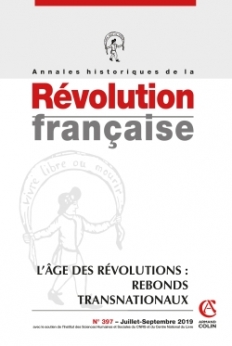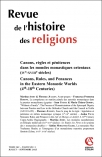
Annales historiques de la Révolution française nº397 (3/2019)
Pour acheter ce numéro, contactez-nous
Recevez les numéros de l'année en cours et accédez à l'intégralité des articles en ligne.
The revolutions from the end of the eighteenth into the nineteenth century that changed the Atlantic world were all connected. An American historian R. R. Palmer and a French historian J. Godechot, proposed that this late eighteenth century Atlantic basin be understood as a community through which ideas, people, and goods flowed. Atlantic history looks at networks linking localities, and it internationalizes actors and ideas. Instead of a chain of revolutions, one leading to the next, a web would now be a more apt metaphor for the approach of most historians of the Atlantic Revolution. Entangled in this web, itinerant revolutionaries crossed borders, interlinking struggles for liberty throughout the Atlantic world. Theirs was a rowdy, multi-lingual world rife in contradictions. Liberty and the universal rights of man gave these revolutionaries throughout the Atlantic world a common language, even if the revolutionaries meant different things by the term bequeathed to them by the Enlightenment Philosophes. The preeminent declarations of the American and French Revolution do not capture the full range of possibilities of the definition of liberty. Not just founding fathers, but tradesmen and artisans, slaves, and merchants’ wives contributed to define the possibilities of rights in a revolutionary new world. Revolutionaries on four continents incorporated ideals defined in Geneva, the United Provinces of the Netherlands, Poland, Tuscany, Guadeloupe, Sierra Leone, and the Rhineland.

